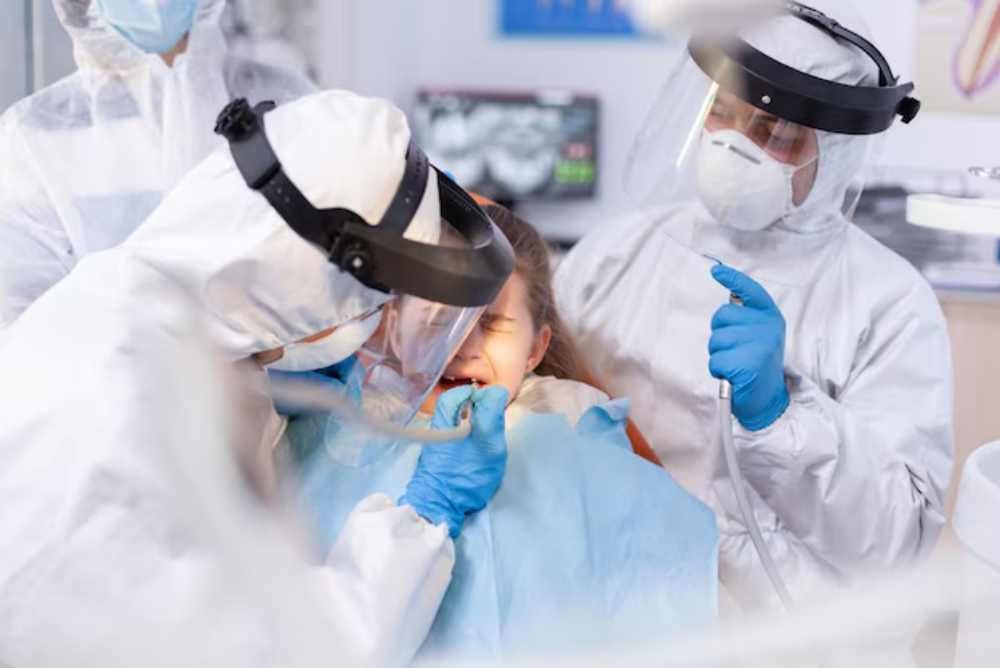
Have you ever felt a sudden and sharp pain in your tooth and wondered whether it is serious enough for emergency dentistry in Cumming? Knowing when to call for immediate help and when you can wait for a regular visit can save you unnecessary stress and have a positive effect on your oral health. Dental issues aren’t all equally urgent, so understanding the difference will help you know when to call at the right time.
What Counts as a Dental Emergency?
A dental emergency could be extreme bleeding, infection, injury, or pain. All of which need immediate treatment. They cannot wait for a regular appointment. Getting dental care from a dental office in Cumming can stop bigger problems like losing a tooth or getting sick.
An emergency dentist should be contacted right away if you have.
- A knocked-out or broken tooth
- Severe, persistent toothache
- Sudden swelling in your gums, face, or jaw
- Bleeding that doesn’t stop
- An abscess or pus around the tooth
Delaying treatment in these cases can lead to a worsening of the condition.
When a Regular Dental Appointment Is Enough
Not all dental problems need immediate care. Little problems can generally hold off until your next appointment with a dentist near you. These include.
- Mild tooth sensitivity
- Small chips or cracks without pain
- Routine cleanings and checkups
- Cosmetic concerns like whitening or veneers
Not sure? Always better to call your dentist and explain your symptoms. They can inform you if urgent care is needed instead of a visit to the regular dentist.
Key Differences: Emergency vs. Routine Dental Visits
Here’s a simple breakdown to help you decide what kind of care you need:
| Condition | Emergency Care | Regular Appointment |
| Knocked-out tooth | Immediate treatment needed | Not suitable for delay |
| Mild toothache | Call if it worsens | Routine checkup |
| Broken filling | Urgent if painful | Schedule repair |
| Gum bleeding | If heavy or recurring | Regular cleaning |
| Swelling or abscess | Emergency visit | Needs immediate attention |
If your symptoms involve pain, bleeding, or infection, it’s good to contact emergency dentistry near you instead of waiting for your next appointment.
Why Timely Action Matters
If you keep ignoring dental emergencies like these, they will ultimately go beyond your control.
- Permanent tooth loss
- Infection of the jawbone
- Progress of gum disease
- Severe swelling or an abscess breaking open
Receiving immediate care from a dentist in Cumming is the reason for a quick recovery and it is a safeguard for your oral health in the long run. In case the pain disappears, the cause that is still there may have to be dealt with to prevent a recurrence of the problem.
How to Handle a Dental Emergency at Home
You could try this suggestion before making your way to the dentist.
- Rinse your mouth with warm salt water.
- Apply a cold compress to reduce swelling.
- You can try over-the-counter pain relief (don’t use aspirin on gums).
- Keeping a knocked-out tooth moist in milk or saliva.
Following these steps will prevent any additional damage to your teeth until you visit a dental office near you.
When Should You Not Delay?
If you notice pus, swelling, or fever, get an appointment with a dentist immediately. On top of that, if you have suffered trauma to your mouth or lost a tooth, call for emergency dentistry in Cumming as soon as possible. Taking quick action can save your tooth or cause it to be lost.
Quick Relief Starts with the Right Care!
Dental Care makes all the difference during sudden pain or for a simple check-up. Don’t wait for a toothache or mouth discomfort to worsen. Contact Pinewood Dentistry today and keep smiling without worry.
FAQs
Can a cracked tooth wait until my next appointment?
A small crack may wait if it’s painless, but a deeper crack opening up to the nerves needs to be attended to immediately.
What should I do if I lose a filling or crown?
Keep the area clean, don’t chew on that side, and see a dentist for a replacement near you as soon as possible.
Does gum bleeding always require an emergency?
No, not always. If your kid’s gums bleed only occasionally, it may be because he brushes too hard at times or gum irritation. If the bleeding persists, however, it needs professional attention.
How soon should I see a dentist after a tooth injury?
If possible, within 30 minutes to improve the chance of saving the tooth.
